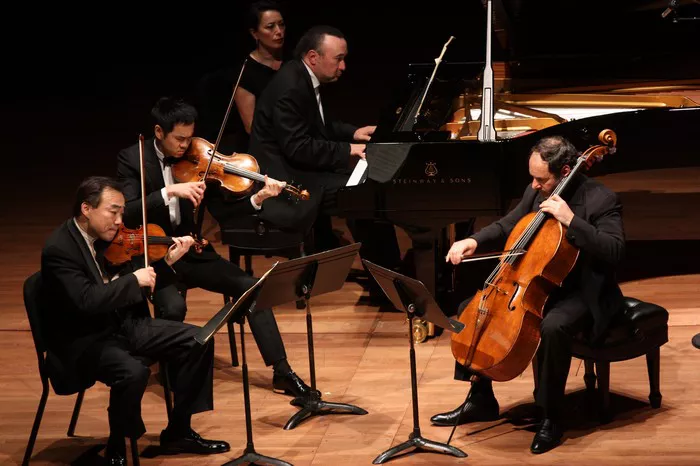Classical music is a vast and rich genre that has stood the test of time, captivating audiences for centuries with its depth, complexity, and emotional resonance. For beginners embarking on a journey into the world of classical music, it can seem daunting at first. However, with the right approach and guidance, exploring classical music can be a rewarding and enriching experience. In this comprehensive guide, we will delve into the essentials of classical music for beginners, covering everything from its history and key composers to recommended listening and tips for appreciation.
Understanding Classical Music: A Brief History
Before delving into the intricacies of classical music, it’s essential to understand its historical context. Classical music refers to a broad genre of Western art music that spans from the medieval period to the present day. It is characterized by its complexity, formal structure, and emphasis on instrumentation and composition.
The history of classical music can be divided into distinct periods, each marked by stylistic and compositional changes:
Medieval (500-1400): The medieval period laid the foundation for Western classical music, with sacred chants and monophonic melodies dominating musical compositions.
Renaissance (1400-1600): This period saw a flourishing of polyphony, with composers like Josquin des Prez and Giovanni Pierluigi da Palestrina creating intricate vocal compositions.
Baroque (1600-1750): Baroque music is characterized by ornate melodies, elaborate ornamentation, and the development of instrumental music. Key composers include Johann Sebastian Bach, George Frideric Handel, and Antonio Vivaldi.
Classical (1750-1820): The Classical period marked a shift towards clarity, balance, and structure in music. Wolfgang Amadeus Mozart, Ludwig van Beethoven, and Franz Joseph Haydn are prominent composers of this era.
Romantic (1820-1900): Romantic composers emphasized emotion, individual expression, and dramatic storytelling in their works. Notable figures include Ludwig van Beethoven, Franz Schubert, and Pyotr Ilyich Tchaikovsky.
Modern and Contemporary (20th century-present): The 20th century saw the emergence of diverse musical styles, from impressionism and atonality to minimalism and electronic music. Composers like Igor Stravinsky, Claude Debussy, and Philip Glass pushed the boundaries of classical music.
Key Elements of Classical Music
To appreciate classical music fully, beginners should familiarize themselves with its key elements:
Melody: Melodies are the primary themes or tunes in a piece of music. They are often memorable and serve as the focal point of a composition.
Harmony: Harmony refers to the combination of musical notes played simultaneously to create chords and add depth to the music.
Rhythm: Rhythm encompasses the patterns of beats and timing in music. It dictates the pace and flow of a piece.
Dynamics: Dynamics refer to the variations in volume and intensity within a musical piece, ranging from pianissimo (very soft) to fortissimo (very loud).
Texture: Texture describes the layers and interplay of musical elements, such as melody, harmony, and rhythm, within a composition.
Form: Form refers to the overall structure of a musical piece, including its organization into sections like movements, sonatas, or symphonies.
Getting Started: Tips for Beginners
Now that we’ve covered the basics of classical music, here are some tips to help beginners get started on their musical journey:
Start with Familiar Pieces: Begin by listening to well-known classical pieces that are accessible and enjoyable for beginners. Examples include Beethoven’s “Für Elise,” Mozart’s “Eine kleine Nachtmusik,” and Vivaldi’s “The Four Seasons.”
Explore Different Periods: Take the time to explore music from various classical periods, from the Baroque to the Romantic era. This will give you a diverse perspective on classical music styles.
Attend Concerts and Performances: Live performances can enhance your understanding and appreciation of classical music. Attend orchestral concerts, chamber music recitals, and opera performances to experience the music firsthand.
Read About Composers and Their Works: Dive into biographies of classical composers to learn about their lives, influences, and contributions to music. Understanding the context behind the music can deepen your connection to it.
Experiment with Instruments: If you’re inclined towards playing music, consider learning an instrument commonly used in classical music, such as the piano, violin, or cello. Playing an instrument can offer a hands-on experience of classical compositions.
Join Music Communities: Engage with fellow classical music enthusiasts by joining online forums, attending music workshops, or participating in local music groups. Sharing insights and experiences with others can enhance your musical journey.
Recommended Listening for Beginners
To further guide beginners in their exploration of classical music, here is a curated list of essential pieces across different periods:
Baroque:
Johann Sebastian Bach – Brandenburg Concertos
George Frideric Handel – Messiah
Antonio Vivaldi – The Four Seasons
Classical:
Wolfgang Amadeus Mozart – Symphony No. 40 in G minor
Ludwig van Beethoven – Symphony No. 5 in C minor
Franz Joseph Haydn – String Quartets
Romantic:
Ludwig van Beethoven – Piano Sonata No. 14 “Moonlight Sonata”
Franz Schubert – Symphony No. 8 “Unfinished Symphony”
Pyotr Ilyich Tchaikovsky – Swan Lake (Ballet Suite)
Modern and Contemporary:
Igor Stravinsky – The Rite of Spring
Claude Debussy – Clair de Lune
Philip Glass – Glassworks
Conclusion
As you embark on your journey into the world of classical music, remember that it’s a vast and diverse landscape waiting to be explored. Take your time to listen, learn, and appreciate the beauty and complexity of classical compositions. Whether you’re drawn to the soaring melodies of Mozart or the experimental sounds of modern composers, there’s something in classical music for every listener to enjoy. Embrace the rich heritage of this timeless genre and let it inspire you on your musical odyssey.

